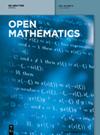Dynamics and optimal harvesting of prey–predator in a polluted environment in the presence of scavenger and pollution control
IF 0.9
4区 数学
Q1 MATHEMATICS
引用次数: 0
Abstract
This paper is concerned with the dynamics and optimal harvesting of a prey–predator system in a polluted environment in the presence of scavengers and pollution control. Toxicants, released from external sources and the dead bodies of prey and predators, pollute the environment, which affects the growth of both prey and predators, resulting in a decline in the economic revenue from harvest. We assume that scavengers reduce pollution by consuming dead bodies. Further, we consider pollution reduction through depollution efforts as an alternative to enhancing revenue. We propose and analyze a prey–predator–pollutant model and study the optimal harvesting problem. We investigate the persistence of the ecosystem, and we solve the optimal harvest problem using Pontryagin’s maximum principle. The results indicate that uncontrolled prey harvesting and a high rate of pollution drive the system toward the extinction of both species. A moderate amount of pollution and the reasonable harvest efforts allow the system to persist. The optimal harvest strategy highlights that investing in pollution reduction enhances the persistence of the system as well as economic revenue. Numerical examples demonstrate the significant outcomes of the study.污染环境中存在食腐动物和污染控制的食饵-捕食者动态和最佳收获
本文研究了污染环境中存在食腐动物和污染控制的捕食-捕食系统的动力学和最优收获。外源释放的有毒物质以及猎物和捕食者的尸体会污染环境,影响猎物和捕食者的生长,导致经济收入下降。我们假设食腐动物通过食用尸体来减少污染。此外,我们认为通过减少污染来减少污染是增加收入的另一种选择。我们提出并分析了一个猎物-捕食者-污染物模型,研究了最优收获问题。我们研究了生态系统的持续性,并利用庞特里亚金最大值原理求解了最优收获问题。结果表明,不受控制的猎物捕获和高污染率推动了这两个物种的灭绝。适度的污染和合理的收获努力使该系统得以持续。最优收获策略强调,投资于减少污染可以提高系统的持久性和经济收入。数值算例验证了研究结果的显著性。
本文章由计算机程序翻译,如有差异,请以英文原文为准。
求助全文
约1分钟内获得全文
求助全文
来源期刊

Open Mathematics
MATHEMATICS-
CiteScore
2.40
自引率
5.90%
发文量
67
审稿时长
16 weeks
期刊介绍:
Open Mathematics - formerly Central European Journal of Mathematics
Open Mathematics is a fully peer-reviewed, open access, electronic journal that publishes significant, original and relevant works in all areas of mathematics. The journal provides the readers with free, instant, and permanent access to all content worldwide; and the authors with extensive promotion of published articles, long-time preservation, language-correction services, no space constraints and immediate publication.
Open Mathematics is listed in Thomson Reuters - Current Contents/Physical, Chemical and Earth Sciences. Our standard policy requires each paper to be reviewed by at least two Referees and the peer-review process is single-blind.
Aims and Scope
The journal aims at presenting high-impact and relevant research on topics across the full span of mathematics. Coverage includes:
 求助内容:
求助内容: 应助结果提醒方式:
应助结果提醒方式:


